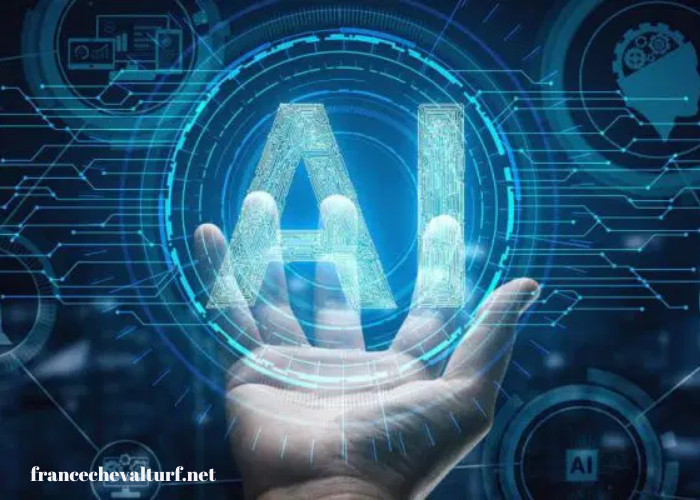Artificial Intelligence (AI) has rapidly emerged as one of the most transformative technologies of our time, reshaping industries across the globe. As we move deeper into the digital age, AI’s ability to process vast amounts of data, learn from patterns, and make decisions with minimal human intervention is revolutionizing the way businesses operate, creating new opportunities, and addressing some of the most pressing challenges of our era. This article explores how AI is transforming various industries and the potential it holds for the future.
The Evolution of AI: From Concept to Reality
The concept of AI is not new; it has been a topic of interest for decades. However, recent advancements in computing power, data availability, and machine learning algorithms have turned AI from a theoretical idea into a practical tool with real-world applications. AI’s evolution can be traced back to the development of early neural networks and expert systems, but it is the advent of deep learning and natural language processing that has truly unlocked its potential.
Today, AI encompasses a broad range of technologies, including machine learning, computer vision, robotics, and natural language processing. These technologies are being integrated into various sectors, leading to increased efficiency, reduced costs, and the creation of entirely new business models.
AI in Healthcare: Revolutionizing Patient Care
One of the most significant impacts of AI is in the healthcare industry. AI is transforming the way medical professionals diagnose and treat diseases, leading to improved patient outcomes and more personalized care. AI-powered diagnostic tools can analyze medical images, such as X-rays and MRIs, with a level of accuracy that rivals or even surpasses that of human doctors. These tools can detect early signs of diseases like cancer, allowing for earlier intervention and better chances of recovery.
Moreover, AI is being used to develop personalized treatment plans based on a patient’s genetic makeup, lifestyle, and medical history. This approach, known as precision medicine, is revolutionizing the way we think about healthcare by moving away from a one-size-fits-all model to one that is tailored to the individual. AI-driven drug discovery is also accelerating the development of new medications, potentially reducing the time it takes to bring life-saving drugs to market.
AI in Finance: Enhancing Efficiency and Security
The financial sector has been quick to adopt AI, leveraging its capabilities to enhance efficiency, improve customer experiences, and strengthen security. AI-powered algorithms are now being used to analyze vast amounts of financial data, enabling institutions to make more informed decisions and better manage risk. For instance, AI can detect fraudulent transactions in real time by analyzing patterns and identifying anomalies that may indicate fraudulent activity.
In addition to security, AI is also transforming customer interactions within the financial industry. Chatbots and virtual assistants are becoming increasingly common, providing customers with instant support and guidance. These AI-driven tools can handle a wide range of inquiries, from account balance checks to investment advice, freeing up human agents to focus on more complex tasks.
Furthermore, AI is playing a crucial role in investment management. Robo-advisors, which use AI algorithms to create and manage investment portfolios, are gaining popularity among individual investors. These platforms offer a cost-effective alternative to traditional financial advisors, making investment management more accessible to a broader audience.
AI in Manufacturing: Driving Efficiency and Innovation
The manufacturing industry is undergoing a profound transformation thanks to AI. From optimizing production processes to enabling predictive maintenance, AI is driving efficiency and innovation across the sector. One of the most notable applications of AI in manufacturing is the use of smart factories, where AI-powered systems monitor and control production lines in real time. These systems can identify bottlenecks, predict equipment failures, and adjust production schedules to maximize efficiency.
Predictive maintenance is another area where AI is making a significant impact. By analyzing data from sensors embedded in machinery, AI can predict when a machine is likely to fail, allowing for maintenance to be scheduled before a breakdown occurs. This not only reduces downtime but also extends the lifespan of equipment, leading to cost savings for manufacturers.
AI is also playing a pivotal role in quality control. Computer vision systems, powered by AI, can inspect products on the production line with a level of precision that far exceeds human capabilities. These systems can detect defects at a microscopic level, ensuring that only products of the highest quality reach consumers.
AI in Retail: Transforming the Shopping Experience
The retail industry is another sector that is being transformed by AI. Retailers are leveraging AI to enhance the shopping experience, optimize supply chains, and better understand consumer behavior. One of the most visible applications of AI in retail is personalized recommendations. By analyzing a customer’s past purchases, browsing history, and preferences, AI algorithms can suggest products that are likely to appeal to that individual, leading to increased sales and customer satisfaction.
AI is also revolutionizing inventory management. Retailers can use AI to forecast demand more accurately, ensuring that they have the right products in stock at the right time. This reduces the likelihood of overstocking or stockouts, both of which can negatively impact a retailer’s bottom line.
Moreover, AI is being used to streamline the checkout process. Autonomous checkout systems, powered by AI, allow customers to simply walk out of a store with their purchases, with the transaction being processed automatically. This not only enhances the customer experience but also reduces the need for cashiers, allowing retailers to allocate resources more efficiently.
AI in Transportation: Shaping the Future of Mobility
The transportation industry is on the cusp of a revolution, driven in large part by AI. Autonomous vehicles, which rely heavily on AI to navigate and make decisions, are poised to transform the way we travel. Companies like Tesla, Waymo, and Uber are at the forefront of this movement, developing self-driving cars that promise to reduce accidents, ease traffic congestion, and lower emissions.
AI is also playing a critical role in optimizing logistics and supply chain management. By analyzing data from various sources, AI can identify the most efficient routes for shipping goods, reducing fuel consumption and delivery times. This not only benefits companies by lowering costs but also has a positive impact on the environment by reducing carbon emissions.
In the aviation industry, AI is being used to enhance safety and efficiency. AI-powered systems can analyze data from aircraft sensors in real time, detecting potential issues before they become critical. This allows for proactive maintenance and ensures that flights operate smoothly and safely.
The Ethical Implications of AI: Balancing Innovation and Responsibility
While the benefits of AI are undeniable, its rapid adoption also raises important ethical questions. As AI becomes more integrated into our daily lives, concerns about privacy, bias, and job displacement are becoming increasingly prominent. For instance, AI algorithms are only as good as the data they are trained on, and if that data is biased, the resulting decisions may also be biased. This has significant implications, particularly in areas like hiring, lending, and law enforcement.
Moreover, as AI automates more tasks, there is a growing concern about job displacement. While AI has the potential to create new jobs, particularly in fields like AI development and data science, it may also render certain roles obsolete, particularly those that involve routine or repetitive tasks.
To address these challenges, it is crucial for businesses, governments, and society at large to engage in a dialogue about the responsible use of AI. This includes developing regulations that ensure transparency and fairness, investing in education and retraining programs to prepare workers for the jobs of the future, and fostering a culture of ethical AI development.
Conclusion: Embracing the AI-Driven Future
AI is undeniably transforming industries across the globe, driving innovation, efficiency, and growth. From healthcare to transportation, AI is reshaping the way we live and work, creating new opportunities while also presenting new challenges. As we move forward, it is essential to harness the power of AI responsibly, ensuring that its benefits are shared widely and that its risks are managed effectively. By doing so, we can build a future where AI not only transforms industries but also enhances the human experience, creating a better world for tomorrow.




